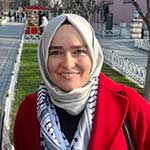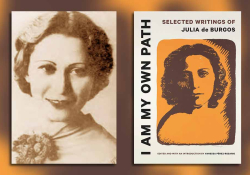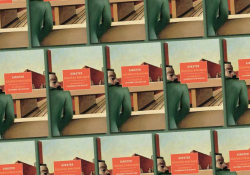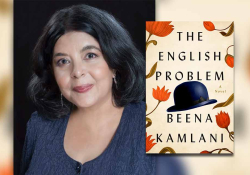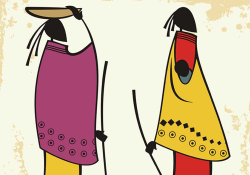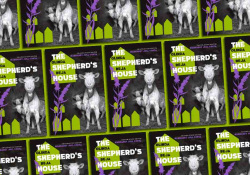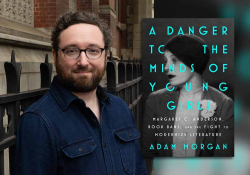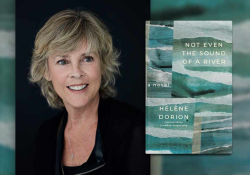The Language of Survival and Resistance: A Review of Shereen Malherbe’s Yassini Girls
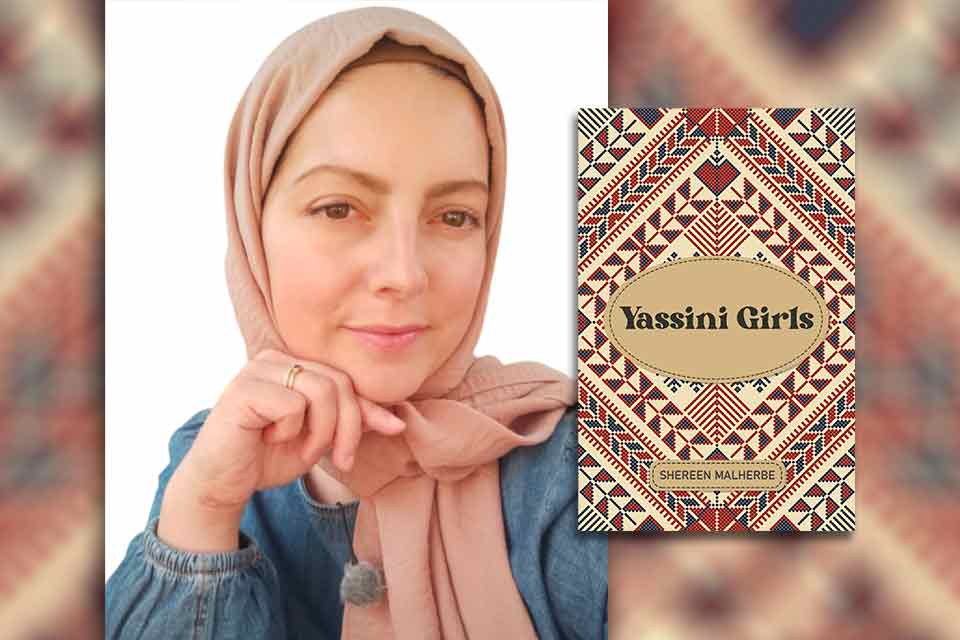 Yassini Girls (Beacon Books, 2024), the new novel by Shereen Malherbe, invites readers into a rich and emotional narrative, weaving together the personal and the historical. Through the intertwined stories of Layla, Fatima, and the Girl, Malherbe explores what it means to live between worlds, hold onto tradition, and endure trauma. Her storytelling is both direct and nuanced, engaging with the intimate details of individual lives while reflecting the broader experiences of the Palestinian people.
Yassini Girls (Beacon Books, 2024), the new novel by Shereen Malherbe, invites readers into a rich and emotional narrative, weaving together the personal and the historical. Through the intertwined stories of Layla, Fatima, and the Girl, Malherbe explores what it means to live between worlds, hold onto tradition, and endure trauma. Her storytelling is both direct and nuanced, engaging with the intimate details of individual lives while reflecting the broader experiences of the Palestinian people.
The novel begins with the scent of maqlouba, a traditional Palestinian dish dating back to Salahuddin al-Ayyubi’s time. This introduction emphasizes that heritage and continuity are central themes. Food, here, is not just sustenance—it is a way of asserting identity in the face of othering and displacement. The narrative flows between past and present, tracing characters who know where they belong and those still searching.
At the heart of the novel is Layla, a young woman born in the diaspora to a Palestinian father and an English mother. After losing her father, she reconnects with her roots through a TV documentary. Layla’s story captures the tension of living between two worlds, as she struggles to reconcile what she has inherited with what she lives day-to-day. You feel her uncertainty, her hopes, her fears—and the honesty with which Malherbe presents these emotions makes the story feel raw and real. The author draws you into Layla’s inner world, while leaving parts of it carefully veiled, hinting at deeper truths that remain unspoken.
Fatima’s narrative, by contrast, draws readers into the trauma of the Deir Yassin massacre, transporting them to a time of beauty and tranquility shattered by violence. Fatima’s quiet resistance is expressed through tatreez, the intricate Palestinian embroidery that symbolizes survival. She lives on, giving life and preserving traditions, showing that survival itself is an act of defiance. Here, resistance means holding on to life, love, and dignity in the face of suffering.
Fatima lives on, giving life and preserving traditions, showing that survival itself is an act of defiance.
The Girl’s narrative serves as an allegory, threading through the other two stories and representing the universal search for meaning and connection to the land. The novel’s structure—fluid, fragmented, and interconnected—mimics the nature of memory and belonging, much like the tatreez embroidery that only reveals its full pattern over time. In this sense, tatreez becomes more than embroidery—it is a language of survival, a thread connecting past, present, and future.
The buried treasure in the novel adds another symbolic layer. It suggests the rewards awaiting those who endure, whether in this life or the next.
Though Yassini Girls is not overtly political, its message is clear: “We exist, we belong to the land, and we are not going anywhere.” Malherbe leaves certain historical details, like the Deir Yassin massacre, for readers to explore independently. Some may wish for more explicit context, but the emotional weight of the story comes from what is not said, from the silences between the lines. This narrative restraint allows readers to experience the depth of loss without graphic depiction.
Malherbe’s prose is vivid and immersive, fully engaging the senses. You can almost smell the spices in the air, taste the mint tea, and feel the delicate stitches of tatreez on your fingertips. Although these sensory moments are tinged with sorrow, they remain strangely comforting, never leaving a bitter aftertaste. Every word seems chosen with care, as if each syllable holds an emotion waiting to surface.
Building on her earlier work, The Land Beneath the Light, written for young adults, Yassini Girls marks an exciting new chapter in Shereen Malherbe’s career. With greater confidence and depth, Malherbe’s storytelling feels more assured, nuanced, and mature, reflecting her evolution as a writer. This novel is a powerful testament to her artistic growth—the culmination of her experience and insight. These are the ripened fruits of her literary journey, leaving readers eager for even more stories to come.
With greater confidence and depth, Malherbe’s storytelling feels more assured, nuanced, and mature, reflecting her evolution as a writer.
The novel encourages readers to reflect on the fragility of life and safety, reminding us how quickly both can be lost, as they have been for millions of Palestinians. The sadness in the novel is heavy but never overwhelming. Instead, Malherbe offers hope, showing that even in the darkest moments, life continues. To be Palestinian, as portrayed in the story, means holding on to life, love, and land, even when everything else is falling apart. This resistance—not turning bitter, but choosing to continue—becomes sacred. It is like mint tea brewed with a hint of bitterness, yet offering warmth and comfort.
Ultimately, Malherbe affirms that belonging to the land is not about possession but about purpose—a divine calling that reveals treasures to those who remain steadfast. By preserving traditions, nurturing life, and holding onto hope, we honor those who came before us and ensure that their stories continue to inspire future generations.
About the author
Shereen Malherbe, a British Palestinian author and English literature graduate, has earned recognition for her authentic depictions of Palestinian life and culture. Her novels, including Jasmine Falling and The Tower, emphasize cultural preservation and identity. She has also been included in the Muslim 500: The 500 Most Influential Muslims of 2025, with Yassini Girls featured in their book corner. Her works have received international acclaim and nominations for the Palestine Book Awards, further cementing her reputation as an important literary voice.
Istanbul
